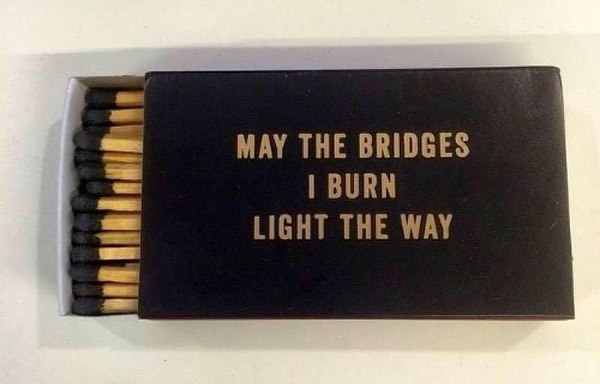When asked about career advice for people entering the publishing industry today, my answer always comes with multiple caveats because I think it’s next to impossible to recreate my career path, especially for someone without a college degree.
I recorded a few episodes of “The People’s Guide to Publishing” podcast at the end of 2022 with Microcosm‘s dynamic duo, Joe Biel and Elly Blue, and one of the topics we discussed was my unusual career path in publishing, how it influenced my perspective on and approach to the industry, and why I can’t quit it.
That conversation unexpectedly made me think about, and remember somewhat fondly, my time in the Army — two things that don’t happen very often.
In February 1991 — three weeks back in NYC after a roller coaster year in Miami Beach, with a literal $100 in my pocket, no winter clothes, and zero work prospects — I walked into an Army recruitment center in Brooklyn, still getting over a cold, and enlisted. It was my third attempt in three years, the previous two derailed by flat feet, but a fortuitous combination of Desert Shield (soon to become Desert Storm, and shortly thereafter, perpetual war), desperate recruiters, and an apparent wiping out of enlistment records after two years, I slipped through.
My desire to join the Army had nothing to do with patriotism nor a death wish, I simply couldn’t imagine any other options at the time. My initial college trajectory had been derailed by Jehovah’s Witnesses (a whole other story), while my belated first attempt at Freshman year as a brand new 21-year-old was derailed by my own lack of self-control — the aforementioned Miami Beach. On the job front, NYC restaurants didn’t care about my experience outside of NYC, and it would be a couple of years before I learned how to channel my more intangible Gen X life skills.
Despite early jobs as a library page, newspaper carrier, and bookstore clerk, working in publishing wasn’t even something I’d ever thought of — although I’d harbored fantasies of being a writer since the 4th grade.
What I Learned in the Army
I don’t regret my time in the Army — 2.5 years* on active duty, including basic training, AIT, and airborne school, and another 5.5 years in the NJ National Guard — but I frequently underestimate the things I learned that would ultimately serve me well in the business world.
Structural Flexibility
On the surface, the Army would seem to be a bastion of conformity, especially if you believe Hollywood’s take on things, but my experience was a little different. There was definitely a clear structure and hierarchy in place at every level — from squad to platoon to company and upwards — but within each was a surprising amount of flexibility, depending on who was in charge and what role your group played. I was a support mechanic in the 5th Special Forces Group, and we enjoyed a lot more overall flexibility than the 101st Airborne soldiers we shared a base with, while the real green berets were notorious for having a more relaxed view of most rules.
I’ve realized I’m at my best working within a structure that I can push against, even if that pushing isn’t necessarily welcomed.
Incompetent Leaders
While the drill sergeants I dealt with mostly fit the old stereotypes, they were often far less intimidating than they are in movies because you quickly realize they can’t actually act on any of their outlandish threats. While they can definitely make your life miserable, believe it or not, they’re not actually going to “skull fuck” anyone! All they can do is insult you, make you do exercises until you can’t do anymore, assign you the worst chores — but they can only maintain that level of abuse for the first few weeks before risking too many recruits failing to graduate. The more soldiers realized that and worked together to resist it, the less power the drill sergeants held over us.
I’ve realized that titles are often meaningless, and true leadership can happen at any level of an organization.
Diversity Matters
Despite signing up out of desperation and being stationed in Fort Campbell, KY for two years, I actually enjoyed a lot of my time in the Army. Our unit was one of the most diverse groups of people I’ve ever worked with, including an outright Confederate flag-flying racist, and our matching uniforms were the only thing most of us had in common. Some of us were from cities, some from rural areas. Some of us were fresh out of high school, while others had a few years of real-world experience under our belts. Most of us were straight; some of us rejected “Don’t Ask, Don’t Tell,” while some happily joked about Pink Berets. We were Black, White, and a wide range of Hispanic, and one Filipino was in charge of my colleagues in the motor pool.
Outside of the Army, I’ve very often been the only person of color in a department, and one of a handful in a company. Because of my time in the Army, I can pretty much engage with anyone, and I have more respect for outright racists than those who pretend they’re not.

Being Honest About Publishing
I was tickled when I saw how Microcosm titled our conversation about my career path in the industry, and listening to it for the first time, it’s another reminder that my path was a relatively unusual one, difficult and unlikely to be replicated in the structure of the current industry. That said, I do think there’s still an opportunity (and more importantly, a need) for people to be more outspoken about the various challenges the industry is dealing with, dismantling whisper networks to level the playing field for those coming from non-traditional backgrounds.
I hope people are taking the HarperCollins Union’s successful strike as a sign that things can change in the industry if enough pressure is applied in the right place, while also recognizing that maybe corporate publishers shouldn’t be put on such a high a pedestal to begin with. The Microcosms of the industry are proof that there are other ways and other places outside of NYC to be successful in publishing.
More importantly, I think being honest with yourself about why you want to work in this silly industry is the only way to ensure you have a shot at being happy in it, and in doing so, you have to be willing to risk burning some bridges along the way.
*NOTE: A lot of people don’t realize you sign up for an eight-year commitment with the Army, regardless of your initial commitment, and many people found out the hard way after 9/11 when they were called back to duty. I also served in NJ National Guard until 1999, and was lucky to be out completely by 9/11, after which a lot of people got pulled back into active service, presumably because there wasn’t a patriotic surge to enlist in what became a never-ending war. That, too, is a story for another time.
Source: Photo by Untitled Photo on Unsplash.
Do you like email?
Sign up here to get my bi-weekly "newsletter" and/or receive every new blog post delivered right to your inbox. (Burner emails are fine. I get it!)

